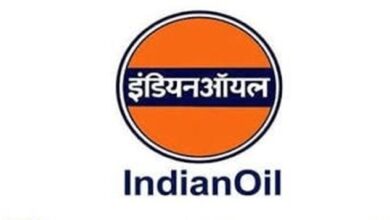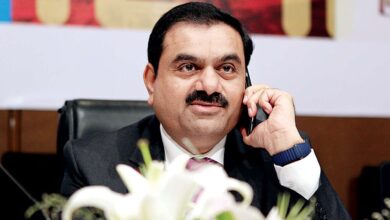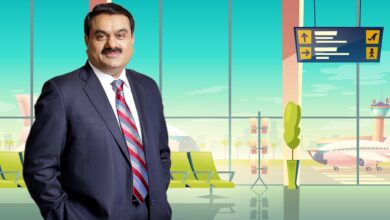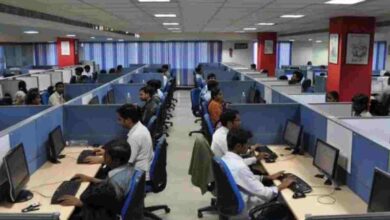Can N Chandrasekaran, Maharaja’s new avatar, lead Air India back to glory in 2022?

Synopsis
When it comes to N Chandrasekaran, the aviation business has always been a big mess. Chandrasekaran’s search for new employees has become more difficult now that Air India’s CEO-designate like Ayci is out of the picture. His job may require him to spend a lot of time in the aviation field to save Air India and other loss-making airlines.

2017 was the year. To get into Tata Sons’ headquarters, Bombay House, N Chandrasekaran got out of his deep-blue Jaguar XF luxury sedan. At this point, he seemed to be thinking about something.
They were meeting in one of the meeting rooms of the four-story building, which famous Scottish architect George Wittet initially designed. They were waiting for their boss, “Chandra,” to come in. Also in the room was Phee Teik Yeoh, who used to be the CEO of Vistara, a four-year-old joint venture between Tata Sons and its old-time partner Singapore Airlines. She was going to give a presentation about the state of the joint venture, which was losing money.
As a tech intern in 1987, Chandrasekaran joined Tata Consultancy Services (TCS) and worked his way up the ladder to become TCS’s CEO before taking over the reins of Tata Sons. Chandrasekaran has had a rough time in the aviation business. He didn’t change his mind, even though the IT company that makes about INR40,000 million in profit every year helps airlines worldwide with software.
That’s why he didn’t like planes. A person who has worked with Chandrasekaran tells ET Prime that he often said that everyone makes money except for the airline in aviation. “He said that a lot,” the person says.
To start the airline operations of companies owned by Tata Sons, N Chandrasekaran relies on what he learned at TCS to help him get the job done. To show you how this works, let’s say he used to be very excited about Norwegian Air.
At a meeting in 2017 in Bombay House, the CEO of Norwegian Air was there, and the Singaporeans didn’t like it at all, this person says.
About 50 years ago, the full-service store was still open. Singapore Airlines sees itself as the standard for airline service worldwide, while Norwegian Air, founded in 1993, is a budget airline that has made a big move into transatlantic flights.
It’s been almost five years since the meeting at Bombay House. Chandrasekaran, 55, is in charge of bringing back not just Vistara but also four other airlines. And a lot of his success will depend on the people he hires to lead them.
The search for good people was a tough job for N Chandrasekaran.
It will be even more difficult for Chandrasekaran to find the right people to run Air India and Turkish Airlines now that lker Ayci won’t be joining the Tata Sons-owned airline.

He may also have to spend a lot of time working in the aviation industry to turn around the airlines business, which will be a big part of his legacy.
Around two dozen people who worked on Air India’s revival say that the first few weeks after Tata Sons bought the state-owned carrier hasn’t gone as well as they would have liked. And even though there have been some changes, there is still a lot of uncertainty about the airline’s short- and long-term strategic direction in the Air.
People don’t care if they’re told that “We value you,” but they’re number 21 in line at the call center, says former Indian Airlines deputy managing director Manet Paes. He’s talking about the need to speed things up and do more than making things look better.
N Chandrasekaran wanted first to hire a CEO who could run the airline’s day-to-day operations, build its top management team, and make recommendations about things like merging with other airlines.
After winning the bid to buy Air India in October last year, Tatas began looking for a CEO.
N Chandrasekaran wanted to hire an ex-pat he knew from his time at TCS, but he changed his mind. As he was already in his early 60s, the idea was dropped because he thought the best person to run Air India should be in his 50s (Ayci is 51 years old).
Executive search firm Egon Zehnder was given to find Air India’s top five CEO candidates. It is based in Zurich.
It was hard to find the right person because many ex-pat CEOs didn’t want to move away from their families during the pandemic.
When Ayci, who had been to the Tata headquarters twice, was finally offered the job, a second official said that, too, but he didn’t want to be named. Ayci has done an excellent job managing Turkish Airlines’ unions and running a growing company. Chandrasekaran may also have liked him because he had a lot of “Asian values.” He may also have been able to get along with government officials in Turkey because he was a political aide to Turkish President Recep Tayyip Erdoan.
The people who have worked with Chandrasekaran say he usually has a good sense of which people are good. Even though Sunil Bhaskaran, who worked for Tata Steel in Jamshedpur, didn’t know anything about flying, he was approved by him in 2018 to be the new CEO of AirAsia India, even though he didn’t know anything about flying. During this time, the airline was getting a lot of bad press because of an investigation into bribery, court cases filed by a lawyer and BJP leader, and the civil aviation ministry was not letting it fly internationally.
N Chandrasekaran gave Saurabh Agrawal, a close friend of Nipun Aggarwal, the job of leading the bidding for Air India last year. Aggarwal is also a senior vice president at Tata Sons, where he works. Air India was bought by Tatas with very little debt, thanks to the government taking over most of it and setting aside INR52,000 crore in next year’s budget for the purchase. There were some drawbacks.
Bhaskaran plays the guitar and sings Kishore Kumar songs for AirAsia employees. Aggarwal, on the other hand, was different.
“Nipun is very angry when he talks. Third-person: “He is an investment banker who makes deals, so he is very aggressive.” If you say you’ll get back to him tomorrow, he’ll say, “In one hour, get it done.”
This isn’t true for the CEO job at Air India, though. On the same day that Tata Sons bought Air India, he stepped down from the Turkish Airlines board. N Chandrasekaran was very interested in hiring Ayci, even though he had a lot of bad things to say about Erdogan, a leader who isn’t very friendly to India.
Ayci is also said to have had a connection to an al-Qaeda financier. Part of the confidence in getting the Indian government to OK Ayci’s appointment may have come from a recent experience. Voltas, a Tata company that makes air conditioners, and Arcelik, a company that makes household appliances, teamed up in 2017 to help grow the consumer durables market in India. That project went well without any problems.
When you fly, it’s not the same.
They were afraid that Ayci would have a hard time with Air India union members behind the scenes. Because of this, they kept talking about his job at Air India as a safety risk. These unions also usually reach out to a lot of different political groups. Days after Ayci’s name was made public, the Swadeshi Jagran Manch, a branch of the Rashtriya Swayam Sevak Sangh, said the government should not give Ayci security clearance “keeping in mind national security.”
This is clear because Tatas didn’t see this even though they hired a top CEO-search firm like Zehnder. TCS is known for doing a lot of research on the global contracts it signs. To see if it would help, you could have looked up the history of another Turkish company. Celebi, a ground-handling company, based in Turkey, has had to keep stressing that most of its investors are from the United States. It works at Indian airports.
Murali Ramachandran, the CEO of Celebi’s India, says that a security check can take six or eight months.
It takes foreigners three or four months to get security clearance from India’s home ministry, but residents like N Chandrasekaran get it in a month or two. I think it’s unlikely that N Chandrasekaran would have waited for his new boss to give the airline a strategic direction for six months or even more.
Even more, research done by ET Prime found out that the Tatas had tried to get security clearance for Chandrasekaran and Hindustan Unilever’s CEO, Sanjiv Mehta, to join Air India’s board on February 11. At the end of three days, Ayci’s name was said to be the CEO. But his papers were not moved to get a security clearance, so they didn’t move. He said he didn’t want the job two weeks ago because of the controversy.
Somebody else who knows about the subject says that “they spent the last 20 days trying to get the man to back off.” Because of this baggage of stories, he might not have been able to work well in the system.” Tatas hasn’t sent his security clearance documents shows a change of heart.
In the next few weeks, the airline wants to hire someone from outside the country to be its CEO again, the second person says.
As the search for a new CEO is still going on, the airline has chosen to focus on the fruit that is easy to pick.
Being on time
During the last few weeks, Air India has seen an increase in the number of flights that arrive on time in major cities, which now stands at around 95%.
That’s right.
Another person who knows about the subject says that Tata Sons have been looking into Air India’s processes since December of last year, but they don’t want to be named. The group found that the airline didn’t keep track of on-time performance the same day as it used to. Reports used to come the next day, but now they reach the same day. This is now different. There is also a new way to make sure regional directors stay in touch with each other more often, suitable for everyone.
Further, the airline pilots sometimes used to let go of the parking brakes on their planes even though they didn’t have permission from the air traffic control (ATC) to move backward so that they could land. This was sometimes done because of technical reasons, but it often lets pilots clock in more paid work hours, which hurt the airline, so sometimes did it. Around 0.5% of Air India’s flights have been on time since they changed this process.
“It was so weird,” this person said.
The new management wants to make sure that flights are on time, and the pilots are also telling the crew to close the gates on time so that they can take off on time. Much attention is paid to the first flight of the day, which takes off at around 5 am, and the gates are supposed to be closed 20 minutes before the plane leaves. If the first departure is on time, there is also some extra time for any delays during the rest of the day.
Some pilots used to stop by Starbucks to get a cup of coffee even if it meant that their flights were pushed back or even if the company’s transportation didn’t show up on time. A fifth official, who asked not to be named, tells ET Prime that this used to be the case.
They’re all running for the plane now, but only 20% have changed their attitude. “That’s because they are afraid they’ll lose their jobs.” For the most part, the change in attitude has not yet happened.
To keep Air India employees for one year, Tatas can’t let them go. This means that the airline’s employees have about ten more months to show that they are good at their jobs. A voluntary retirement plan (VRS) for Tata employees may also be in the works, says the second person. VRS can still be used right now, but the government has asked the group not to use it for a year.
Chandrasekaran knows the difficulties of changing an airline that was run ad hoc under the “guidance” of several bureaucrats and ministers. Suresh Tripathi, the former human resources head of Tata Steel, has been hired.
A new video conference called #Takeoff has been set up by Tripathi, where employees can talk about their problems and get the news about the airline’s plans. It doesn’t stop there, though. They’ve also been given an e-mail address to send their problems to. Queries are sent to different departments and answered by the people who work on them.
As someone who has worked with labor unions before, Tripathi has been sympathetic and stern in these talks. He has made it clear to the employees that they will only be promoted based on their performance in the future. The airline, which used to have Sharmila Tagore and Jaya Bachchan help it hire cabin crew, now has a group that will decide who gets promoted and who does not.
When pilots asked Tripathi about pay raises, he was candid with them.
“First, we need to make money to give it to the workers. So, for the first year, the main thing is to make the airline more efficient, he told them, according to the fifth person who said this to the Daily News.
Those who work for a company must meet specific.
Another thing the airline is working on is making sure its service is better, so its crew members have to go through a two-day refresher course.
Passengers are now called “guests,” and in Hindi, yatriyon (passengers) has changed to athithis (guests) to show this.
The crew has also been told to stop calling each other “sir” or “madam.” Instead, they should use their first names, and they don’t like this.
Further, the crew expects a lot more from domestic flights than they get, but they don’t get what they expect.
Among other things, passengers should be given hot and cold towels on some flights. While the breadbasket has been brought back, sometimes the tongs to serve bread and the silver entrée to serve juices aren’t.
“The training is done rapidly.” In this case, it’s more for a wide-body cabin crew, but even narrow-body teams have to do it, says the fifth person.
They also don’t like that the airline wants everyone to be trained on all of its planes. Some people think it’s terrible to work on small planes. It has been a long time since Indian Airlines and Air India merged, but the airline has continued to operate as two separate entities in many ways – narrow body and vast body. Even though this cross-training should have been done a long time ago to save money and improve flight operations, the training hasn’t begun yet.
Air India hasn’t asked its workers to lose weight in the past because the union has taken a firm stance against the company. Weight checks for the crew were only done once every four years, compared to Vistara’s monthly bills. Even if the team was caught on the heavier side, they were warned and told to lose weight in a certain amount of time. This deadline, too, was often pushed back as well.
Some people work for the company that does this work, but they’ve only been able to get data on how often these checks are done.
If they punish overweight crew members, then Air India will be the new Air India. There is nothing else to say. “Other than that, it’s the same old airline.”
In their efforts to change the airline’s image, the Tatas have been kind enough to change the menu, even though they may not be able to make back the money they spent. Instead of a small piece of Dairy Milk chocolate, a kheer cham cham is served as a dessert.
There have been flaws in even this. The Air India menu that ET Prime looked at has a lot of spelling mistakes. For example, Airbus is spelled that way, and Grilled Zucchini is spelled “Frilled Zucchini.”
It’s still the same group of people who work in the crew department, and there are so many skeletons. Nothing will happen. Injecting new talent is very important. People who know about this say that they should hire someone who has a lot of experience managing full-service airlines to head this department first.
Air India has also been hurt by the cash crunch going on for a long time.
For example, the airline doesn’t have the forecasting tools it needs to figure out how many people will be interested in its flights, look at historical trends, and set prices accordingly. This is not the only thing Air India hasn’t been able to do.
Besides, we don’t even have laptops to work with, and only a few seniors have them. Seven more people say that if we buy new software, our computers will most likely break down.
On the other hand, Tatas have been quick to whitewash Air India’s offices and make sure that salaries are paid on time. They have also made sure that the buildings and premises are cleaned regularly. He says that executives from TCS have also been stationed at the Air India office to get more detailed information about revenue management and other things.
Hundreds of new company e-mail addresses will also have to be made for the software company because Tatas have found that many of their employees use Gmail/Hotmail/Yahoo, and so on, for work.
An Air India spokesman tells ET Prime that “[It] is only for the use of the crew, and there are no spelling mistakes on the menu card.” It says that cabin crew BMI (body mass index) checks are part of a standard operating procedure. The airline “does not want to make any detailed comment on this.” There are “no shortages, and all service equipment is being brought on the flights.”
The company now wants to improve the overall customer experience at all of its touchpoints in terms of customer service. Air India’s spokesman says that to reach this goal, “a complete overhaul of process and procedure is taking place with the sole goal of quickly solving passenger issues.”
One of the biggest problems.
As for Air India, Chandrasekaran may have gotten a good deal on it, but Tata didn’t call the important engineering department the government runs.

It’s a considerable risk, says an eighth official who also didn’t want to be named. “How do you order around someone who isn’t in your control but can impact your flight operations and aircraft turnaround time?”
Indeed, some AI Engineering Services Ltd (AIESL) have gone on strike this week because they say they don’t get paid enough. This has caused some flights to be canceled. Air India will still use AIESL, but its legacy contracts cost 30% more than if they had been done in-house like other airlines, says a ninth official who knows about the arrangements.
It’s not going to be easy for Chandrasekaran because Air India will lose a lot of money. Net loss: The airline is likely to lose about INR5,000 crore in FY22. A possible plane order and higher oil prices could make a similar or even more significant loss in the next fiscal year.
As a result, Air India’s interest payments will be lower because the government has bought most of its debt. The airline will also be rewarded for paying its bills on time, such as by getting fuel discounts from Indian Oil. It already has better terms on loans from lenders like the State Bank of India, so this is a good thing.
Even though Chandrasekaran is known for giving a lot of power to the top managers of his group’s businesses, he wants to see a return on the money that he invests. If the team doesn’t do well, he won’t be afraid to change them.
In the first person quoted above, they say, “He is not the one to be spoiled.”
Chandrasekaran could be limited because the group’s two loss-making airlines, Vistara and AirAsia India, are joint ventures with other companies. The Tatas were supposed to handle only finance and human resources at the start.
Even though the group’s chief financial officer, Agrawal, is always angry with both carriers.
At the start of the year, these airlines will think they’ll make INR200 million, but they’ll report a loss of INR400 million by the end of the year. A tenth official, who knows Agrawal, says that.
To Agrawal’s annoyance, their pitches would be followed by even more aggressive plans for their airlines to grow. Chandrasekaran would come in at that point.
“Let’s not try to be too ambitious,” he would say. “We can’t become IndiGo in a day, and we have to work hard every year.” Become number #2 or number #3 first.
Having Air India as part of its portfolio has made Tatas the second-largest airline in India, and the first-largest airline in the world. But it will take Chandrasekaran a long time to reach the profits of IndiGo before the pandemic.
Now that his second term as chair of Tata started last month and will end in 2027 when he turns 60, it will be challenging and involve a business that doesn’t make money.
His favorite airline, Norwegian Air, was forced to close down three years after the meeting at Bombay House.
edited and published by nikita sharma






